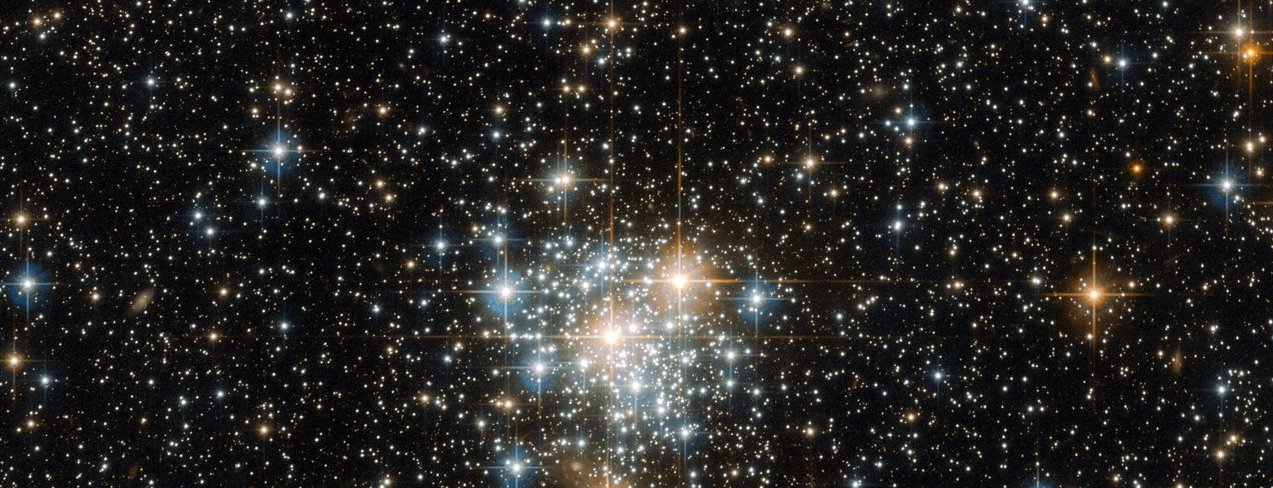
NASA Goddard
I fell in love with astronomy when I was ten years old. I didn’t really understand the science of the heavens, but I could grasp the beauty and wonder of the night sky, wondering what it was all about. My experience of wonder made me want to know more about the planets and stars, and was an important motivation in my decision to focus on science. I had no interest in religion, and in my teens became an aggressive atheist, holding that science alone was able to answer all of life’s questions. Yet I still found myself fascinated by the night sky, drawn by its vastness and austere beauty.
I remember well reflecting one winter’s evening on the ‘Belt of Orion’, three bright stars at the centre of this constellation, which was a prominent feature of the Irish night sky in December and January. I knew enough about those three stars to know that they were very distant. In fact, I was seeing these stars as they had been hundreds of years ago, not as they actually were.
This, of course, was a simple scientific fact. Yet it was as if I had appreciated its existential implications for the first time. I realized the insignificance of my own lifespan in comparison with the vast distances and timeframes of our universe. It was a moment of insight, in which I came to see that I was unable to cope with the fact of my mortality. I would not be alive when the light being emitted from those three stars finally reached the earth. However, I took the view that science determined what was right, and so came to the conclusion that I would just have to learn to live with a world without hope and meaning.
It was highly fashionable in the 1960s for social progressives to affirm and rejoice in the meaninglessness of life. It was hard for me, as an impressionable teenager, not to be swept along by this remorseless rationalism, which limited reality to what science and reason could prove, and despised those who quested for meaning in life as old-fashioned utopians, incapable of coming to terms with a scientific worldview.
Yet I came to realize that the view that science alone determines reality could not be sustained. In December 1970, I learned that I had been awarded a scholarship to study chemistry at Oxford University. I would not be taking up that place until October 1971, so decided to stay on at my high school for the remainder of that year, and use the time to learn Russian and German, and bring my scientific reading up to speed, especially in the biological sciences.
It was during this period that I began to explore the history and philosophy of science, and began to realize that the scientific positivism that I had so willingly and unthinkingly embraced was unsustainable. This did not cause me to embrace a religious faith. It did, however, do two things for me. First, it destroyed my naïve scientism – as we would now call it – which insisted that science alone could answer all of life’s important questions. And second, it made me receptive to the possibility of a wider and deeper encounter with our world, of which science was an important part – but only a part.
Things fell into place at Oxford, where I discovered Christianity and C. S. Lewis (in that order). Lewis helped me to see that Christianity created intellectual space for the natural sciences, while insisting that they were only part of a greater vision of reality. C. A. Coulson, Oxford’s professor of theoretical chemistry at this time, famously argued that Christianity and the natural sciences offered different – and potentially complementary – perspectives on reality. Perhaps more importantly, he mounted a devastating critique of a ‘God of the gaps’ approach, which located God in the scientifically inexplicable. For Coulson, Christianity offered a grand vision of reality, which explained why science was able to explain anything in the first place. Explicability itself demanded an explanation. Between them, Coulson and Lewis made me realize that my Christian faith did not displace my love of science, but framed it positively, helping me appreciate its strengths, while being alert to its limits. Science is great at helping us discover how the universe works – but it is useless when it comes to finding out what it means.
We need to bear this point in mind when reading Steven Weinberg’s famous 1977 declaration that ‘The more the universe seems comprehensible, the more it also seems pointless.’ Weinberg’s point relates to the strengths and weaknesses of the scientific method. Its great strength is that it makes our universe rationally transparent, so that we can see how it functions. Yet this same method is incapable of disclosing meaning. The outcome is inevitable: the method that enables us to understand our world cannot help us discern its purpose. We need another perspective, another method, another intellectual toolkit to make this happen. That’s where Christianity comes in.
I opened this reflection by talking about the ‘Belt of Orion’, which once spoke to me of the pointlessness of a brief human life. I still look at those stars on cold winter’s evenings. So how do I see them now? I still feel a sense of wonder at their solemn stillness. Yet Christianity gives me a new way of reading the night sky. Like the Psalmist, I find myself overwhelmed by the depth of the universe, yet consoled by the thought that, in a way I still do not fully appreciate, those stars proclaim the glory of a God who made the world, yet chose to enter it in order to redeem us (Psalms 8; 19). I see the night sky through a new lens, which allows me to discern – not impose or invent! – its true meaning and purpose, and thus to appreciate it all the more.




